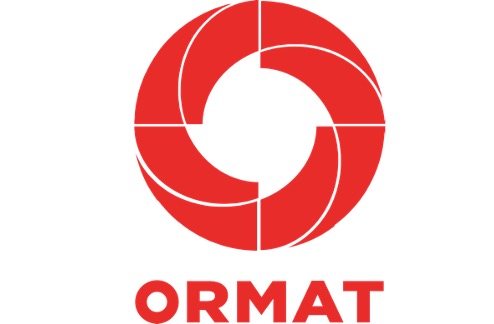- Today we reveal how ESG-darling Ormat, a developer and operator of geothermal power plants, has engaged in what we believe to be widespread and systematic acts of international corruption.
- We expect the blowback to these revelations to be severe, threatening Ormat’s contracts in its most lucrative markets. In fact, history is already catching up to Ormat’s senior leadership.
- Immediately prior to their work at Ormat, several senior Ormat executives and directors worked at Shikun & Binui, a leading Israeli construction company. Shikun & Binui was recently charged by Israeli prosecutors with bribing officials in what are now two of Ormat’s key markets, Kenya and Guatemala.
- Ormat’s General Counsel & Chief Compliance Officer, along with an Ormat director, are under pre-indictment in Israel. This is a formal stage of prosecution just prior to indictment. Ormat has apparently chosen not to disclose that the two are currently in the midst of a criminal prosecution. Both still serve in senior oversight roles at Ormat.
- Ormat CEO Doron Blachar’s immediate prior work experience was serving as CFO at Shikun & Binui. The CEO during Blachar’s entire tenure at Shikun & Binui was arrested in 2018 over the above-referenced bribery allegations. It is unclear whether Blachar faces near-term risk of indictment as well.
- International electricity projects contributed to 70% of Ormat’s 2020 net income—the vast majority of which is comprised of Kenya, Guatemala, and Honduras. We have uncovered evidence tying Ormat to corruption with senior government officials in this lucrative international business.
- For example, multiple former Ormat employees and business partners have revealed how Ormat routes sales of energy assets in Guatemala through an undisclosed related party entity. Guatemalan corporate records corroborate these claims.
- The entity shares an address with several Ormat subsidiaries and was set up by a former Ormat senior employee-turned “independent” consultant who answers directly to senior Ormat leadership, according to the former employees.
- Official corporate records show that the same Guatemalan entity funneled energy rights to two senior government officials who were responsible for approving Ormat’s original deal in the country; the former head of the Mines & Energy Ministry and the former head of the state utility company.
- We believe this is direct evidence tying Ormat to corruption with senior Guatemalan government officials.
- Another Guatemalan Mines and Energy Minister, who was in office when Ormat was later awarded major improvements to its contract, was fired and charged with corruption by the United Nations-created anti-corruption commission. He is currently on the run with an outstanding international arrest warrant.
- Ormat’s operations in Kenya contribute “disproportionately” to the company’s bottom line, generating an estimated ~41% of the company’s FY 2020 net income. Its customer is the Kenya state power company.
- A politically-connected businessman admitted to us that he “opened the doors” for Ormat in Kenya and got the go-ahead for the project after an in-person meeting with the Kenya Power boss (who was later charged with corruption) and former President Daniel Arap Moi, widely regarded as one of Kenya’s most corrupt leaders.
- We present documents showing that Ormat paid contractors in Kenya tied to corrupt government officials, including one run by the son of the former President Daniel Arap Moi along with others run by his documented front-men.
- The head of the Kenyan state-backed utility who oversaw the original contract with Ormat, as well as the energy minister at the time, were later found to have demanded millions of dollars in bribes to allow international power companies to do business in Kenya.
- Two former CEOs of Ormat’s Kenyan customer (the state-backed utility) were subsequently arrested in 2018 and more than a dozen top managers were arrested or accused of crimes relating to corruption.
- The same state utility customer, responsible for driving Ormat’s “disproportionate” financial success in the country, is reportedly “broke” and “technically insolvent”, posing another threat to Ormat’s most lucrative market.
- In Honduras, Ormat charges the state energy company roughly the same rate as end customers pay, virtually guaranteeing a loss for the state. These rates make no economic sense.
- The power agreement assumed by Ormat in Honduras was signed within days of other uneconomical agreements that were signed by the then head of the state utility, who is now under investigation for corruption relating to those agreements.
- We found that an opaque Panamanian entity with no public presence, formed the day after the Honduran coup, registered to unnamed nominee directors, was inserted into the deal. We have submitted a FOIA request to a U.S. agency and are awaiting imminent release of records relating to the entity.
- Ormat’s Honduran plant operates in Copan, known as drug cartel territory. A Honduran congressman told us “You can’t operate in Copan without paying the cartels, the gangs or corrupt politicians – and sometimes all three.”
- We found that Ormat’s contractor in Honduras was raided by authorities on suspicion of being a front company for drug cartels. Its owners are in jail awaiting trial.
- Ormat’s culture of corruption isn’t limited to international markets. In the U.S., Ormat settled DoJ fraud charges after whistleblowers alleged it made fraudulent misrepresentations in order to secure government clean energy loans.
- Corruption is a double edged-sword. Just as a company can win lucrative contracts through illicit means, those contracts can be pulled away once exposed. We expect a very bumpy road ahead for Ormat.
.
For the Full report, visit the Hindenburg Research Website
.
March 1, 2021, published on Hindenburg Research Website






